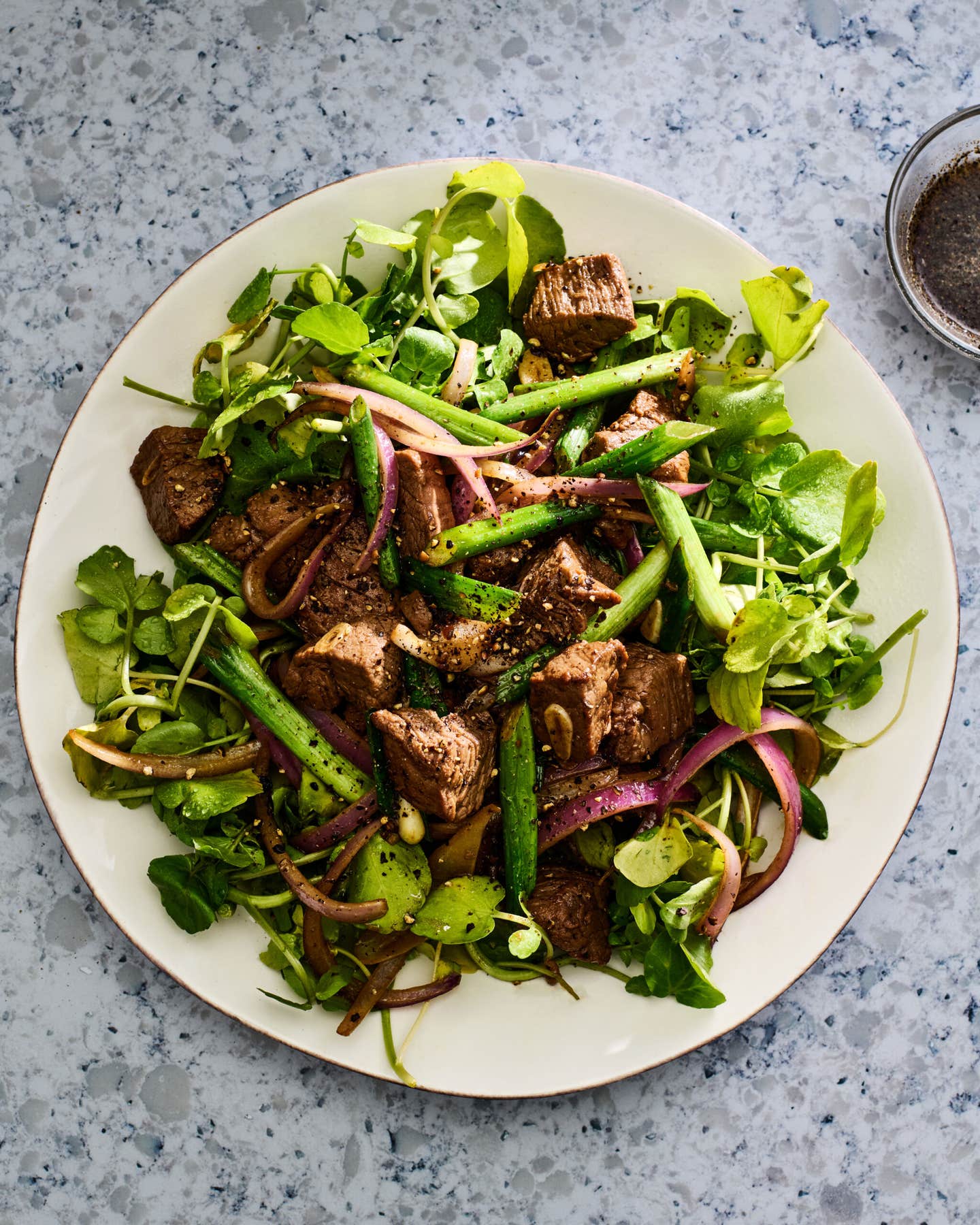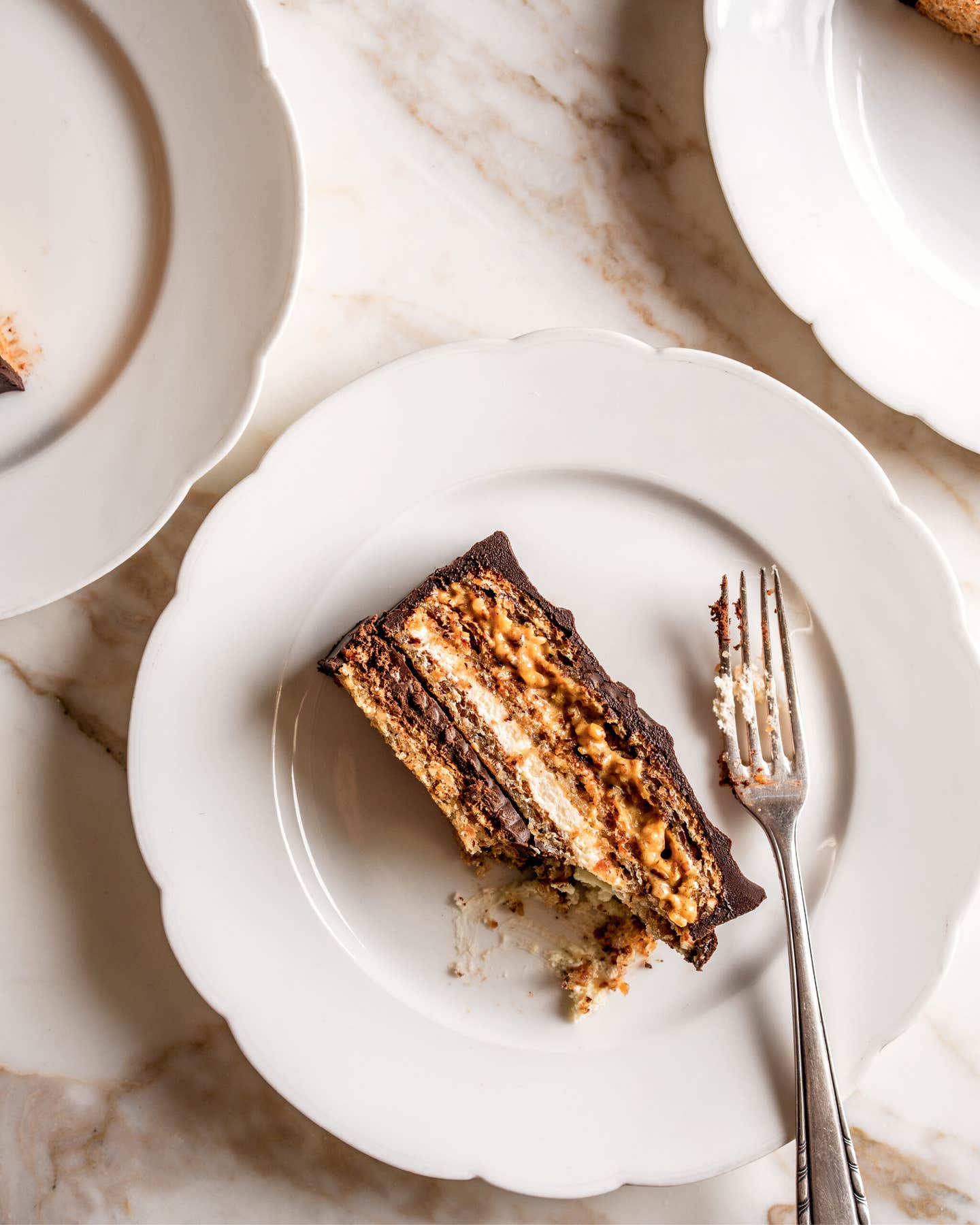
In Praise of the Ramadan Power Breakfast
Professional chefs and a home cook share the pre-dawn meals that get them through a day of fasting.
People who observe the month-long fast of Ramadan know the importance of the first meal of the day. Called "suhoor" in Arabic or "sehri" in Urdu, the traditionally pre-dawn breakfast should, says Indonesian chef Yuda Bustara, "Be filling and provide enough energy until you break the fast, so it's really important. You better not skip it, otherwise you'll be lazy like a sloth!"
Here are four Ramadan fasters—three home cooks and a professional chef—on their essential breakfast strategies and favorite meals.
I've been fasting for Ramadan since I was about 12 years old. The meal before we start fasting for the day ("suhoor" in Arabic) isn't about stuffing your face, but making sure you eat a well-balanced meal and drink enough water to stay well-hydrated throughout the day until sunset (when we can break our fast).
In order to avoid hunger pangs, eating a protein-packed meal is super important. Traditionally, my family eats a dish of slow-cooked fava beans called ful medemes, a common dish in Egypt, plus fried eggs and lots of vegetables, particularly cucumbers, tomatoes, avocados, and anything that has a lot of water and nutrients in it. I've tried fasting without eating suhoor before and would get hungry as early as noon, with several hours still to go in the day (and I've regretted it many times!). I always make sure I eat a high-protein and balanced meal pre-dawn, and I make sure to drink at least a liter of water.
In Jakarta, where I live, we wake up at 3 a.m. and cook this meal. We don't eat an American-style breakfast such as pancakes or eggs sunny-side up. We mostly have carbs, protein, and some vegetables. I had rice with roasted chicken and sautéed garlic broccoli for this morning's suhoor—rice with some side dishes is very typical for suhoor in Indonesia.
Because Ramadan is a very festive month, my mom and I cook something special, like rendang, which is slow-cooked caramelized beef, or oppor ayam, chicken cooked in coconut milk. We also make ayam bakar kecap, which is Indonesian grilled chicken with soy. Those are our three most common meals, and my favorites, too.
Waking up at 3 a.m. to eat isn't exactly fun. But if you're fasting for almost 18 hours and want to remain functional, it's pretty necessary. Everyone in my family has their own preference of what to eat for sehri (that's what we call the pre-fasting meal in Urdu). So when my family is together, we all sit together and eat separate meals. But the one thing we all have are parathas. I haven't done a survey, but I bet most Pakistanis have parathas in sehri.
Over the years, I've figured that what works best for me is a combination of parathas and potatoes. I either have aloo ki bhujia or aloo ka paratha (paratha stuffed with potatoes). Sometimes for a change I'll have an omelet instead of potatoes, but I find that on those days I get hungry sooner. In the last few years I've also added tea to my meal. It's enough caffeine to avoid headaches but not enough to prevent me from going back to sleep at 4 a.m.
Lastly, you have to have lots of water! It's essential to stay hydrated. I wish I could say that I ate a very healthy sehri, but I guess I just go with what helps me function the best.
Nour Cee, NYU Graduate
The food you eat before dawn varies, usually by culture or region of origin. A lot of my friends from the far East prefer to eat heavy dinner-type food for the meal: biryani, meats, and salads. My family here in the U.S. and back home in Egypt, however, eat breakfast: scrambled eggs, feta cheese, and ful, an Egyptian dish of cooked and mashed fava beans. After living in America for as long as we have, we've also integrated less traditional alternatives: bagels, waffles, french toast, hash browns.
The food is meant to simply help prepare you for the day ahead, but over the years in my household it has become an integral part of our Ramadan traditions. My sisters and I often stay up all night, watching movies, playing games, praying or reading Quran, and then prepare suhoor together as dawn approaches. Suhoor went from being a mere meal to something we most look forward to during Ramadan, because it means spending more time together as sisters, spending the hours of the night together and then cooking through the night together.
Masfouf is very simple, but very tasty. Traditionally, it starts with steamed couscous that is packed into a bowl, then flipped to create a kind of mold. From there, we drizzle honey over it and stud it with fresh pomegranate seeds, pieces of dates and sometimes nuts. The texture is wonderful, it’s very fresh. And I actually created a version of it for Boulud Sud brunch when I was the pastry chef—adding in pine nuts, pistachio and almonds. It worked surprisingly well for American brunch, sweet and savory, and can be served with yogurt or custard.
Keep Reading
Continue to Next Story










